History & Overview
OAR is a community-based nonprofit organization that envisions a safe & thriving community where those impacted by the legal system enjoy equal civil & human rights. Through our Upstream work, we are confronting & dismantling individual racism & racism in the legal system & across all systems. Our Downstream work allows us to be on the journey with individuals returning from incarceration & their families. We also offer alternative sentencing options (including community service) and diversion programs so people can avoid the trauma of incarceration & instead help the community thrive.
History & Key Accomplishments
The Offender Aid and Restoration movement was launched in 1968 by citizens responding to a prison riot in Charlottesville, Virginia. These individuals wanted a justice system based on restoration, not retribution. They believed that incarceration should prepare people to return to the community. The goal was to break the cycle of recidivism that made prison a revolving door for many.
OAR of Arlington, Alexandria and Falls Church was established in 1974 by individuals from local faith communities who were volunteering in the local jail. Early efforts included community service, mentoring, and job search assistance. OAR first received funding from Arlington County in 1981, and the County remains an important partner along with the Cities of Alexandria and Falls Church.
In recent years, OAR and others have recognized and started to challenge the systemic racism responsible for mass incarceration and other structural inequalities in our community and country. We now address incarceration, the legal system, and all systems “upstream” (calling out the racism that permeates these systems and seeking social justice) and “downstream” (providing services to specific individuals). OAR journeys with individuals who have been affected by mass incarceration and works to end the systemic injustices created by racism across all systems.
The overall population that accesses services from OAR is 48.7 percent African American, 21.5 percent Caucasian, 11.4 percent Latinx/Latine/Latino/Latina, 3.9 percent multi-racial, 2.7 percent Asian/Pacific Islander, and 11.8 percent other or not identified. Men account for 70 percent, and an estimated 80 percent have incomes below the poverty line. Although we work with youth under age 18 in our alternative sentencing and diversion programs, most of our participants (91 percent) are adults. In our Reentry program, a larger percentage of participants are people of color (more than 80 percent), virtually all have no income or qualify as low income, a much higher percentage are men, and 90 percent have only a high school education or less.
OAR actively recruits Collective members, volunteers, and Board members who have shared life experiences with OAR program participants. They participate in our Action Network and other community programs for racial justice and liberation (always with stipends to compensate them for their time and travel costs), not only sharing their knowledge of, and lived experience with, racism and mass incarceration with others but also emerging as advocates and leaders for racial equity whose voices carry the same weight as those of others in the room.
OAR is the only nonprofit in the area that not only journeys with specific individuals, adults and youth of all genders, impacted by the criminal legal system but that also addresses the systemic racism responsible for mass incarceration and other structural inequities in our society. We are unique in that our efforts actually reduce incarceration by providing courts with alternative sentencing options for adults and youth.
No other reentry programs in our area offer intensive and highly individualized services to individuals of all genders both before and after they are released from jail or prison. Our level of access and ability to work both in groups and one-on-one with individuals within correctional facilities is unmatched. Our pre-release programming includes professional assessments of each individual’s needs and risks using validated instruments, and we are the only provider in the area that develops individual case management plans that incorporate these assessments and that offers appropriate individuals the opportunity to participate in group psychotherapy. In FY21 OAR also established a pilot, gender-responsive, clinical services program specifically working with individuals who identify as women on their reentry journey.
OAR also uses people-first and strength-based language and sees participants as experts on themselves and leaders for their own life and plans. We constantly seek feedback and guidance from participants and pride ourselves on having an ethical storytelling philosophy that respects the dignity and protects the privacy of each person we work with.
Our Work
Through our Upstream work, OAR is confronting and challenging racism in the legal system and other societal structures. We are in the process of creating an anti-racist culture both within OAR and externally. All OAR Collective members have responsibilities related to this work, and all contribute to its success. OAR is currently facilitating several 3-month long Racial Justice and Liberation Virtual Cohorts.
Current efforts include:
- Full engagement from OAR Collective members in a facilitated process to determine where OAR stands with respect to achieving a pro-Black, liberated culture within the organization and to identify and prioritize actions for continuing this transformation.
- Presented a series of Undoing Racism® workshops for members of the community.
- Facilitation of ongoing caucuses for those who complete this training to ensure that the learnings conveyed become daily practices and lived truths.
- Launching of several 3-month long Racial Justice and Liberation virtual cohorts that will focus on a curriculum about racial justice, liberation, and dismantling whiteness for members of the community (currently ongoing).
- Use of “scholarships” waiving registration costs for OAR’s 3-month Racial Justice + Liberation virtual cohorts for OAR program participants and officials from the law enforcement community.
- Facilitation of an ongoing Action Network to seek changes in laws, regulations, programs, and policies.
OAR’s Downstream social service efforts address three areas: Alternative Sentencing + Diversion, Pre-Release Reentry Services, and Post-Release Transition Services.
OAR’s Community Service program works with adults and youth of all genders ordered by the Arlington and Falls Church courts to perform community service in lieu of incarceration or other penalties. Program participants also include individuals who do volunteer work under OAR supervision as a way to pay court costs and fines. By completing community service, individuals keep their jobs, stay in school, and remain with their families, avoiding the disruption, trauma, and lifelong burdens that come with incarceration while at the same time learning new skills. Some also get their cases dismissed altogether. OAR Community Service participants provide more than 100,000 hours of service to more than 300 nonprofits or public sector organizations in the D.C. metro area each year. Several have actually have been hired at their service sites because of their hard work and dedication.
OAR’s reentry programming journeys with those incarcerated at the Arlington County Detention Facility, Alexandria’s William G. Truesdale Adult Detention Center, and Coffeewood State Correctional Center and individuals who have returned home to Arlington County and the Cities of Alexandria and Falls Church from these and other correctional facilities.
Pre-release Services include individual risks and needs assessments, intensive reentry programming (including participatory workshops addressing reentry readiness, workforce readiness, substance use, fatherhood, wellness, social justice, and healthy relationships), one-on-one transition planning, group psychotherapy with licensed clinicians, family reunification activities, and vocational, educational and personal development classes.
OAR’s Transition Services program ensures that individuals have access to continued case management and a comprehensive array of services that help them have a safe reentry. OAR efforts include job search coaching and extensive employment assistance, family reunification, help meeting basic needs (such as food, clothing, shelter, transportation, phones, laptops, etc), and referrals for health care, substance use support programs, and other social services.
Values
- Respect
- Community
- Justice
- Compassion
- Commitment
- Integrity
OAR’s Ethical Storytelling Philosophy
OAR also uses people-first and strength-based language and sees participants as experts on themselves and leaders for their own life and plans. We constantly seek feedback and guidance from participants and pride ourselves on having an ethical storytelling philosophy that respects the dignity and protects the privacy of each person we work with. We do not use the actual names, photos, or videos of OAR participants to protect their privacy.
Financials
OAR’s most recent 990 Form (FY24) can be found HERE.
Additional financials and information can be found on GuideStar by clicking HERE.
OAR’s Gift Acceptance Policy can be found HERE.
Recognition and Seals
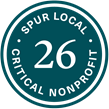 |
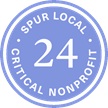 |
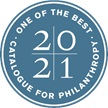 |
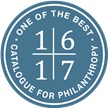 |
|
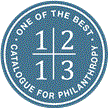 |